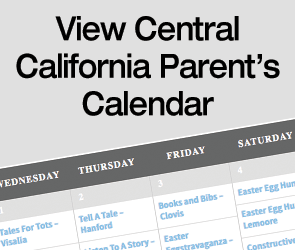Money Matters: Raising Money-Savvy Kids

by Christa Melnyk Hines
Kids may not always listen to the life lessons we try to impart, but when it comes to money, they are an amazingly attentive audience. T. Rowe Price, a global investment management firm, found in a survey that 65 percent of kids approach their parents about money matters. Provide guidance about managing money now and you’ll set your children on the course for a lifetime of financial responsibility and long-term security.
Mike English, economic educator and facilitator of the parent-teacher program “Talking to Your Kids About Personal Finances,” encourages parents to teach kids about money as soon as they can count.
Shape savvy spenders. For Megan Lynch, whose daughters are between 5 years and 10 weeks old, understanding money is an important life skill.
“It took me a really long time to learn to budget and get my credit on track,” Lynch says. “I want my girls to know that being responsible with their finances will reap better rewards than the instant gratification of just blowing it all.”
First, distinguish between wants and needs. Your child will become a more prudent spender, who fulfills needs first and saves for wish-list items to purchase later.
Lynch’s girls use a piggy bank to watch their money grow. “We are trying to teach them that saving up for something special takes time and patience and in the end, they are always proud of how much money they were able to save,” she says.
Basic budgeting. For novice money managers, offer budgeting and planning tips. Trish Batten provides some guidance for her daughter Kendall, but overall she gives her the freedom to make her own decisions about how she spends money.
“Recently she had a goal to save up for a pet, then got invited by a friend to the American Girl Doll Store,” Batten says. “She chose to dip into her money for American Doll items. Her savings for a pet dwindled significantly for what a nine-year-old is able to save up and she is just now realizing it.”
Allowance is another tool for teaching kids as young as four basic budgeting skills. Make the connection between work and earnings by assigning chores that benefit the entire family, like feeding pets or washing the dishes.
Wondering how much to pay? “Err on the side of frugality,” English says. “Keep it low enough so the child learns some discipline and learns to save.” Provide enough allowance each week to cover one of your child’s needs, such as lunch money, and a little extra to go towards a want. “Whatever is left they can spend on discretionary items.”
Avoid bail-outs. If your child spends all of his allowance without considering his weekly expenses, natural consequences like brown-bagging lunch for the rest of the week will quickly teach him the value of planning and budgeting his money. If your child wants to earn more money, offer extra chores for additional allowance.
Talk family finances. Early on, lead by example. “Kendall sees when we give to charity, save money, pay bills, use coupons and such,” Batten says. “We talk about what we are doing and why we are doing it.”
Once your children enter middle school or high school, involve them in family budget discussions to help them understand weekly expenditures. Divide the week’s expenses into envelopes. Even if you wish your finances looked different, “be transparent with kids about your family budget,” English says. The lesson? When a child sees that money isn’t in the budget for the designer jeans she wants, she can save some of her own earnings to purchase the jeans herself.
Open a savings account. By the time your kids are seven or eight-years-old, encourage them to put birthday money or allowance left over at the end of the week into a savings account in their name. With a savings account, children learn about interest and how their money can grow. To get her started, consider matching your child’s already accumulated savings.
Central California Parent is the #1 FREE parenting resource for Central Valley families.
Stay connected with Central California Parent throughout the month!
• Like Us on Facebook
• Follow Us on Instagram
• Follow Us on Pinterest
• Follow Us on Twitter
• Subscribe For our Family E-Newsletter
• Read Our Digital Edition
• Enter for our FREE Giveaways







